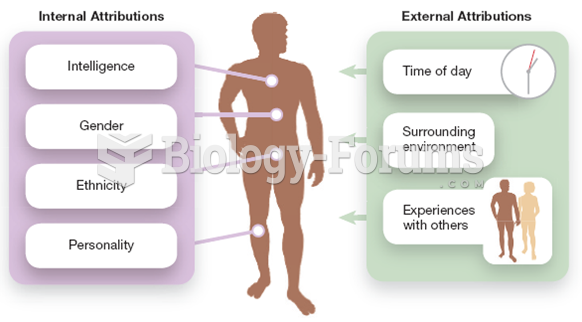|
|
|
In 1864, the first barbiturate (barbituric acid) was synthesized.
As the western states of America were settled, pioneers often had to drink rancid water from ponds and other sources. This often resulted in chronic diarrhea, causing many cases of dehydration and death that could have been avoided if clean water had been available.
Bacteria have flourished on the earth for over three billion years. They were the first life forms on the planet.
ACTH levels are normally highest in the early morning (between 6 and 8 A.M.) and lowest in the evening (between 6 and 11 P.M.). Therefore, a doctor who suspects abnormal levels looks for low ACTH in the morning and high ACTH in the evening.
Pubic lice (crabs) are usually spread through sexual contact. You cannot catch them by using a public toilet.







